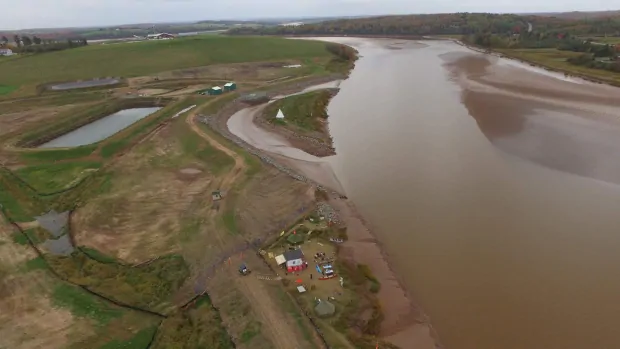Siding with First Nation, N.S. judge overturns Alton Gas approval

The Nova Scotia Supreme Court has ordered the province to resume consultations with Sipekne’katik First Nation over a controversial natural gas storage project on the banks of the Shubenacadie River.
Justice Frank Edwards released his decision Tuesday, writing that former Nova Scotia environment minister Margaret Miller was wrong when she concluded the province had adequately consulted with the First Nation about the project.
He ordered the parties to resume talks for 120 days, “or for such time as the parties mutually agree,” but gave some leniency on a start date because of the ongoing coronavirus outbreak. The parties could wait until the province’s chief medical officer of health declares the crisis is over, or agree on an “alternative remote arrangement.”
Sipekne’katik had challenged in court Miller’s 2016 decision to grant industrial approval to Alton Gas, a subsidiary of Calgary-based energy company AltaGas, for a proposal to store up to 10 billion cubic feet of natural gas in underground caverns.
The Alton Gas project would create the caverns by using water from the Shubenacadie River to flush out nearby natural salt deposits.
Sipekne’katik had appealed the decision once before, and the judge found some procedural unfairness in the province’s process. But Miller later upheld her decision, leading to the latest appeal.
February hearing
Lawyers for the province, the band and Alton Gas made their arguments for the appeal hearing in Nova Scotia Supreme Court at a two-day hearing in February.
The appeal centred on the Crown’s duty to consult with Indigenous peoples on matters that could affect their treaty and Aboriginal rights, as laid out in Canada’s Constitution Act.
Ray Larkin, the lawyer representing Sipekne’katik First Nation, told the court there was no “depth” to the province’s consultation with the band over the Alton Gas project.
Sean Foreman, the lawyer for the government, said the province upheld its duty to consult and any perceived failure was the result of an “uncooperative” approach from the band.
‘Palpable and overriding error’
Edwards sided with Sipeke’katik, reversing the industrial approval.
“The Minister’s decision was not supported by the evidence,” Edward wrote in his decision.
“While there had been extensive consultations regarding the potential environmental impacts of the Project, the core issue of Aboriginal title and treaty rights was never specifically engaged. The Minister therefore committed palpable and overriding error when she concluded that the level of consultation was appropriate.
“I also found that, but for her misapprehension of the evidence, the Minister would have concluded otherwise.”




